Victorian Chamber of Commerce and Industry chief Paul Guerra thought Covid would kill him
The boss of Victoria’s key business lobby group says the pandemic showed him collaboration rather than confrontation is a more effective strategy when engaging the government.
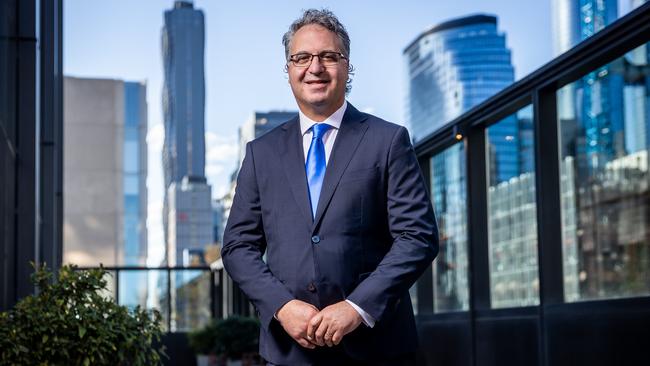
Victoria
Don't miss out on the headlines from Victoria. Followed categories will be added to My News.
Paul Guerra kept hearing that he was going to die.
He had tested positive to Covid-19 in July, 2020; shortly after the pandemic death toll erupted and when images of bodies stacked in morgues were circulating.
Guerra had taken the reins as chief executive of the Victorian Chamber of Commerce and Industry five months earlier, and was doing back-to-back interviews advocating for business at a time of unprecedented uncertainty and fear when his daughter slipped a note under the door.
“Call the doctor,” it read.
After receiving a diagnosis over the phone, Guerra said his reaction was one of disbelief and angst.
“I thought I was gone, that’s what everyone was saying at that time”.
Within days, when severe hallucinations developed, he started to understand the hysteria.
Guerra battled ill health for six months, during which he had no sense of smell or taste, but remained the public face of the state’s business community as it struggled with lockdowns and government decisions aimed at eliminating the spread of the virus.
Behind the scenes he worked his contacts including from his time with one of the world’s largest health companies in the US; choosing a collaborative approach over aggression to find solutions to the crisis.
Guerra sat down with the Herald Sun for the Big V interview to discuss the pandemic, his Italian roots and the importance of family, and the future of business.
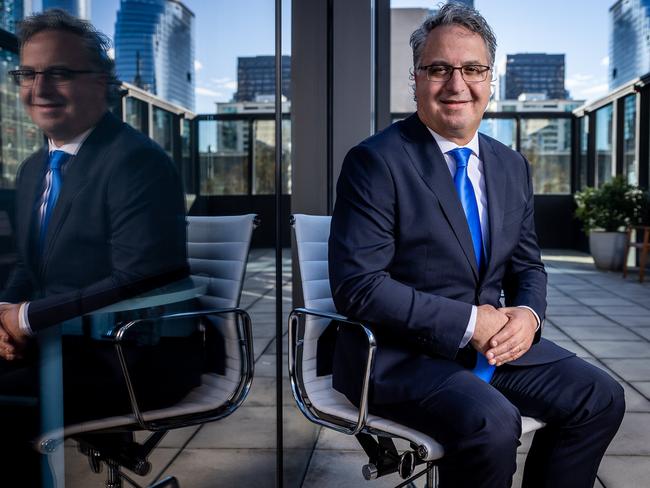
Travelling Salesman
Guerra’s family history is peppered with sliding door moments.
His grandfather on his mother’s side, Leonardo Nardella, was supposed to emigrate from Italy to the US but the night before his boat would have sailed, he had a big night and lost his passport.
By the time his new one arrived, the US was off the table and he had to choose between Canada and Australia – landing on the latter and setting up the first of Silvan’s famous strawberry farms.
“He was the first to do roadside selling in Victoria,” Guerra said.
Later he would dig a driveway in his property to allow for “drive through” fruit sales.
Guerra’s grandfather on his father’s side, Francesco, had already booked his passage to Australia when Guerra’s grandmother Michelina discovered she was pregnant.
Francesco had to make the trip by himself, and bought a farm at Shepparton East where he worked six days a week – the seventh was reserved for church and the pub – to reunite the family.
“It took him 10 years to save enough money to bring his wife and his son, who he barely knew, out to Australia. Imagine that.”
Both families sold food through the Queen Victoria Market, a Melbourne icon that Guerra would later lead.
Guerra is surrounded by “big family”; his uncle had six children, his mum had seven siblings, and he is one of five.
“You can imagine what Christmases were like, they were just great fun,” he said.
Guerra was raised in Melbourne’s east and went to primary school at Our Lady of Lourdes in Bayswater before completing high school at St Joseph’s in Ferntree Gully.
His father John worked at the State Electricity Commission and his mother Lena was a hairdresser before looking after her five children full-time.
Guerra shared a bedroom with two brothers; his two sisters also shared a room.
“No one complained, it’s just what you did,” he said.
A Catholic Italian upbringing meant Sundays revolved around family and cooking, as well as some backyard sports and watching wrestling on the TV.
He was a good student and a “decent” athlete, who played footy alongside North Melbourne premiership player and AFLW coach, Darren Crocker.
Guerra remembers coming to a crossroads at school where he contemplated chasing a spot in the VFL, or a career in engineering.
“I chose study,” he said.
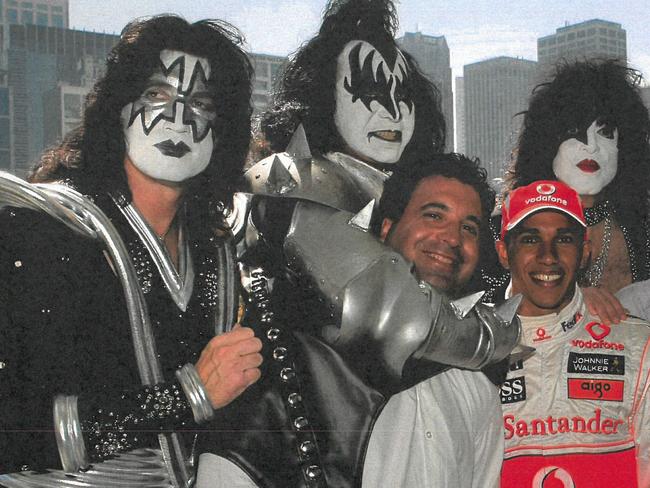
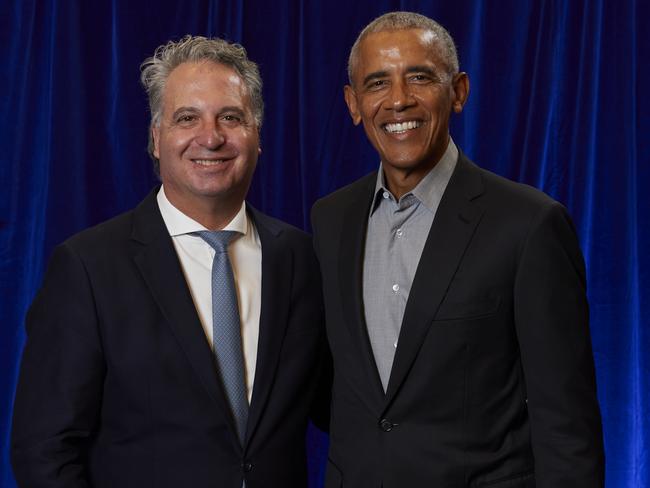
Constructing a career
As a teenager, Guerra wanted to be a builder.
While labouring as a chippy and bricky with his uncles Lou and Tony, who had successful businesses, they told him “it’s a great life, but hard on your body”.
“If you can do it with your brains, why wouldn’t you?” they said.
At Swinburne University Guerra studied electronic engineering with honours and did stints in the workforce at SEC and at telecommunications giant Motorola, where he would go on to have a 17-year career.
While at university he also met his wife, Amelia.
“I was lucky enough to get into Motorola back at a time where no one knew what Motorola did. It was a massive company about to go to the next level” he said.
Guerra shifted into a sales and management role, describing himself as a “problem solver” who could understand what engineers were trying to do and “relate the technical in simple speak”.
“I reckon I was the original translator-communicator” he joked.
He successfully argued to the Chicago head office that the company should pursue a “build, own and operate” communications model, which eventually saw it develop and operate emergency services radio systems in Victoria.
He also helped bring wireless broadband to Australia.
As the Guerra family grew, however, a job with constant travel – including a year working weekdays in Singapore before flights home for weekends – had to be reconsidered.
Children Daniela, Matthew, and Stephen were growing up fast, and Guerra remembered an old colleague – and two-time divorcee – asking him to promise that at the first sign of a choice between family and career, he would choose family.
“At the top of the steps one Sunday night, my middle child, Matt, said ‘are you going to be home in the morning?’.
“I said, ‘I’m going to be in Singapore’. The smile didn’t leave his face, but his whole body just slumped, and I thought ‘that’s the sign’.”
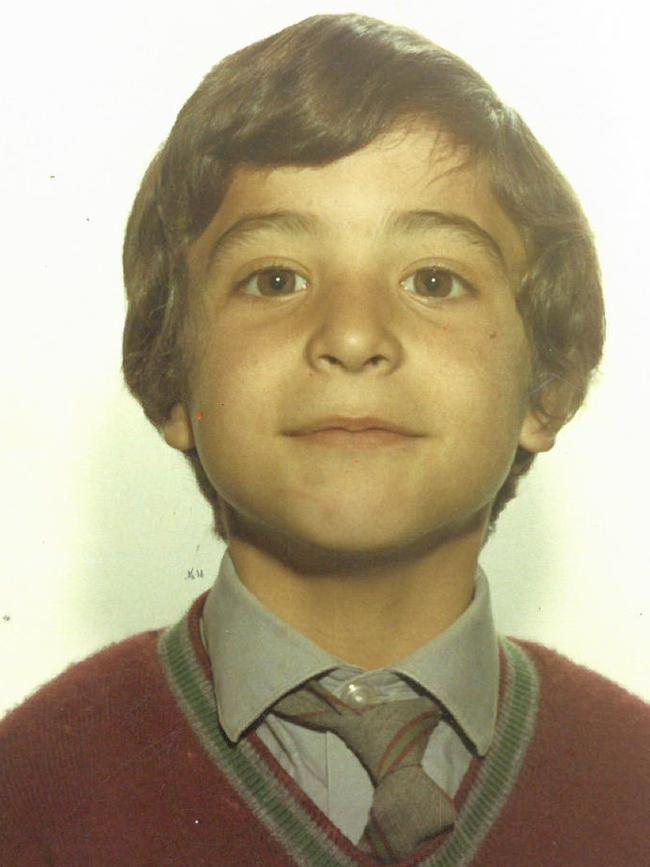
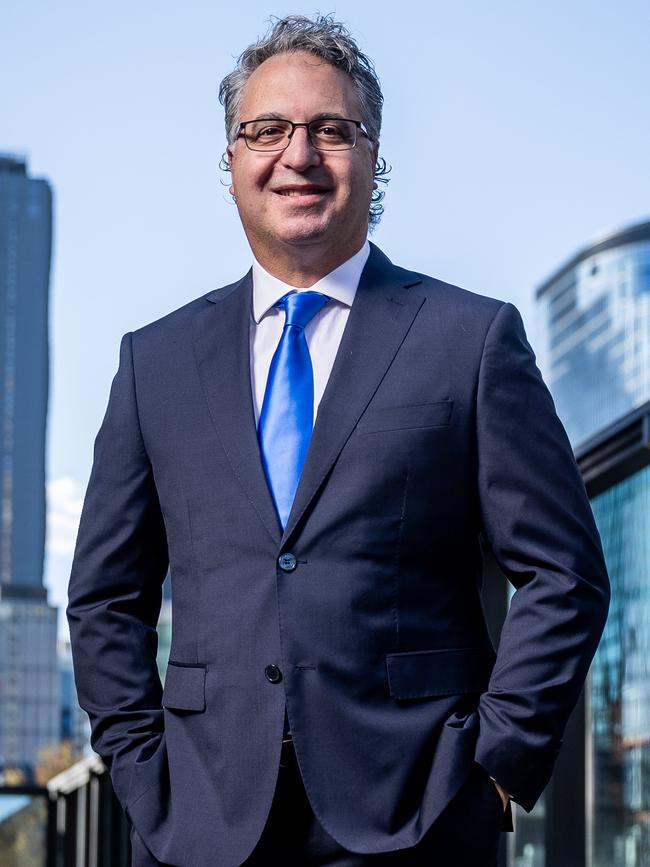
More sliding doors
After leaving Motorola, rival firm Vodafone snapped up Guerra to fix its Victoria and Tasmanian division.
It was a time when the iPhone was hitting Australian shores and the company was involved in “everything” – from major event and sport sponsorship, to live music and charities.
Guerra became involved in the Children Cancer Foundation’s Million Dollar Lunch and joined the board of Red Dust Role Models set up by the “amazing” late John Van Groningen to improve the lives of Indigenous communities; a position he held for 17 years.
“I don’t think my generation is going to solve the issues facing Indigenous people, but I’m hopeful that my children or their children absolutely will,” he said.
Corporate philanthropy has recently changed significantly, Guerra said, “because it’s not just money anymore”.
“Everyone can give a cheque, but you don’t get that experience or insight … walking a mile in their shoes.”
When his position shifted to Sydney in a restructure, Guerra opted to stay in Melbourne and in 2011 took up a role chairing the Queen Victoria Market during its redevelopment – something personally significant to the Guerra family.
“If my grandparents hadn’t had the opportunity to sell their produce into the Queen Vic market, they probably don’t make it,” he said.
Later that decade he would also lead the Royal Agricultural Society of Victoria as it modernised its annual Show.
A major “sliding door” moment occurred in 2012 when a recruiter persisted in offering him a position at one of the world’s largest health companies, United Health Group.
It has a turnover of $250bn but was also at the forefront of preventive health and used algorithms to predict illnesses.
Some of the alumni of that team included former Obama health official Andy Slavitt, who was later enlisted by President Joe Biden to take charge of the country’s Covid vaccine rollout.
Guerra would later contact his old colleague for valuable vaccine lessons on supply, logistics, and communications; as well as use his network of international contacts to forecast the pandemic pain Australia would face.

‘Great, I’m going to die’
After he contracted Covid-19 in July, 2020, Guerra started to write a diary.
He still hasn’t read it.
“Too scared,” he said.
“I remember at one point sitting at my desk, I’m looking at my hand going ‘I wonder whose hand that is?’”
“The other thing I remember is lying on my bed, and it felt like my skin was injecting my muscles with poison.”
The only other family member to test positive – after they were initially turned away from testing centres – was his middle child, Matthew.
Matt’s symptoms were mild, but Guerra remembers the prevailing community mood.
“I thought ‘great, so I’m going to die and I pass this on to my son who is now going to die.”
One of his first calls was a friend and former colleague in the US who advised him to stay upright due to concerns about Covid-related heart issues, to use betadine, and to drink plenty of water.
“I was f**ked for probably six months,” he said.
“I’d lost my taste, it came back after I had a break at Christmas that year.
“I was ready to give my wine cellar away because I couldn’t taste it.”
Guerra shared his story with the government and the “engineer kicked in” to advise it on logistic flaws in responses he experienced.
Business were hammering on his door for help, and Guerra said he made a conscious decision to collaborate to get results, rather than criticise.
“To be effective in these roles you need to offer solutions,” he said.
“Where we didn’t agree I would tell them (government officials) why, and then give solutions as I saw it.
“I was also lucky in that I had employment and certainty of income whereas many businesses had neither, nor did their staff.”
Collaborations with Australian Hotels Association boss Paddy O’Sullivan, Trades Hall boss Luke Hilakari, and Department of Jobs secretary Simon Phemister helped establish business support and worker retention policies aimed at keeping industries afloat during lockdowns.
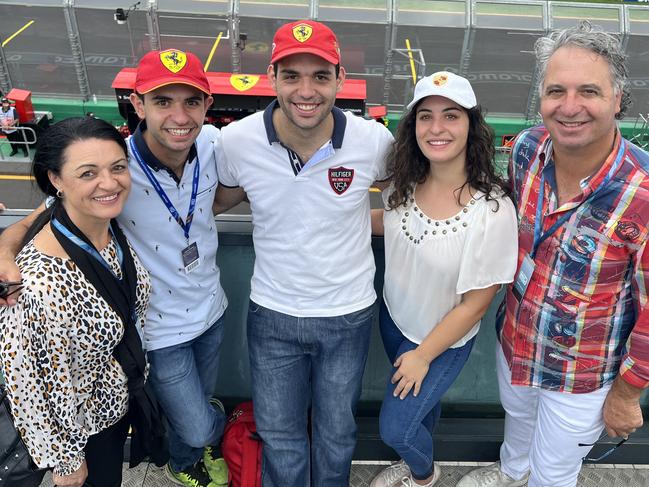
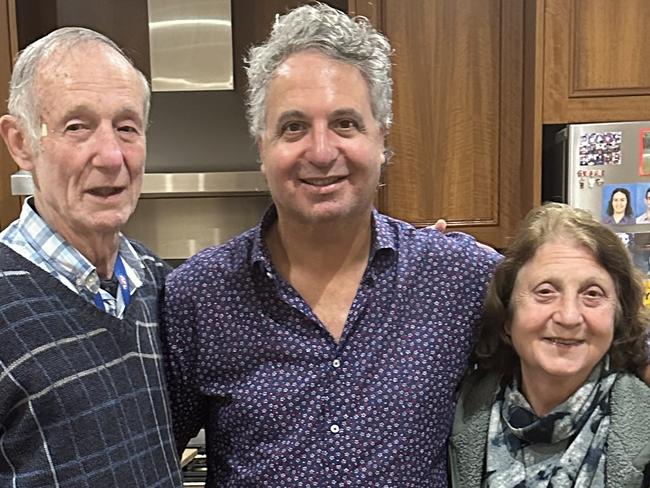
Building the future
One of Guerra’s great hopes is that lessons from the pandemic will be digested properly, to prepare the country for the next one.
“We’ll live this for a long time … we should learn from it,” he said.
For some businesses, changes such as a greater tendency to work from home were “accelerated” – but Guerra is at pains to point out that “at no stage was Covid good”.
More broadly, some organisations remain stuck in an “hours-based mentality” that needs to shift to an outcomes-based mentality, he said.
He uses his work history in sales to illustrate what he means, saying that if employees make their quotas, it didn’t matter if it took them 60 hours, or one hour.
“If we want to play in a global environment, and we do, we need to think about how we restructure ourselves to be able to do that,” he said.
Guerra said the CBD needed a “complete rethink”, while Victoria has a “responsibility for the generation coming through not to leave them just with debt”.
“We’ve got to leave them an ambition for Victoria that they will be happy with, and we will be proud of,” he said.
Guerra said the Commonwealth should consider stepping in and help states struggling with debt from a “World War-type event”.
“Why can’t we get funding out of the federal government to cover our World War-type debt, that gets paid over 50 years and enables Victoria to get on with it?” he said.
Guerra also said the private sector should be called on to solve more problems because it has “a different tolerance for risk than what the government has”.
“I think the narrative of where Victoria goes next is to be written, I think we’ve had a great period of the Big Build; it’s what’s next,” he said.
One area that needed to be addressed is our slow commercialisation of local content.
“Who owns renewables in this country? Why not us? Who owns defence in this country? Why not us?” he said.
“It’s having the ambition and being realistic about what’s coming over the horizon and where we can play – it’s about Victoria’s transformation”
Guerra said his dream is for his children, now in their 20s, and their children to build careers locally rather than have to travel the world as he did.
“My grandparents migrated from Italy to give their kids a better life and I’d hate to think that my grandkids would consider migrating back to Europe for a better life.”
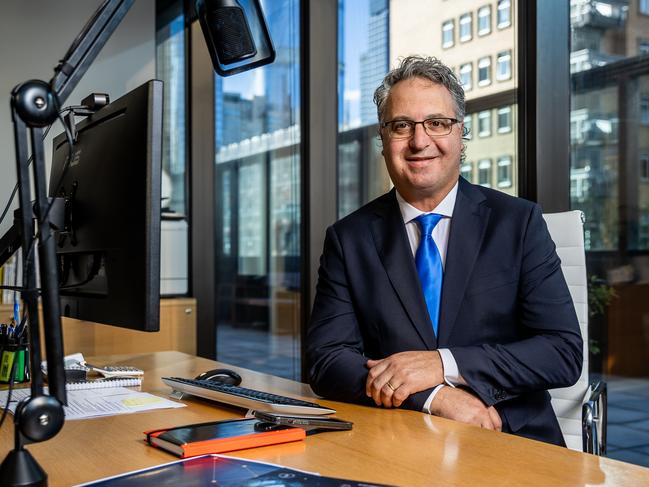
OFF THE RECORD
First job and pay
I delivered papers for Knox News when I was nine years old for $3 a round. My first full time role was as a Project Engineerwith Motorola, and I was paid $29,500 a year.
If you weren’t doing this job, what would you be doing?
Running a multinational company; or launching a new start-up that my family and friends all work in … or a professional golfer or lead singer of a rock band.
Five people you’d invite to a dinner party (dead or alive)
My Italian background means I need eight people:
1. Taylor Swift – a bona fide star and I love her music.
2. Ross Stevenson – loves a chat and tells great stories.
3. John Coleman – legend of my footy team.
4. Queen Elizabeth – she made some amazing decisions.
5. Grandpa Nardella – died four months before I was born, and he was one of Victoria’s original entrepreneurs.
6. Oprah Winfrey – imagine the people she has interviewed!
7. Paul Galvin – founder of Motorola.
8. Bart Cummings – imagine the insights from the Cups King!
9. And then Billy Joel and Barry Gibb would play acoustic, and Nigella, Shane Delia, Stefano Di Pieri and Peter Rowland would be the chefs.
Book everyone should read
I’m not a big book reader so I’d rather have a conversation with someone or watch a movie. If I was watching a movie it’s ‘The Godfather’, Casino, Rocky or Wedding Crashers.
If you could live anywhere in the world besides here, where would it be?
Sorrento, Italy …. I have Italian origins and I love the way of life there.
First concert, dream concert (dead or alive)
Wham. Dream concert is the Beatles.
Most inspirational living person
Eddie McGuire. I admire what he has achieved and his incredible work ethic.
What advice would you give your 18-year-old self
Live in the moment; don’t take yourself too seriously; treat people how you would want to be treated. Invest well; keep learning and stay fit.
First car, current car, dream car
First was a ‘68 Valiant safari wagon. Current is a Porsche SUV. Dream Car has to be a Ferrari or a 1950s Chevy pick-up truck.
One thing people didn’t know about you/hidden talent
I love slalom waterskiing! I would love to try ski the Moomba course with my kids, brothers and sister.
Best and worst birthday present you’ve ever received
There is never a bad birthday present! Everyone tells me I’m hard to buy for. I would love an Essendon premiership though!
Rainy day TV binge
Seinfeld or any top-level sport.
Song you get pumped up to
‘Don’t you worry child’ by Swedish House Mafia
Death row last meal
Homemade gnocchi with bolognese sauce, and my mum’s trifle, matched with a bottle of Grange.
Biggest career regret
None — I’ve been fortunate to work in leadership roles in some of the world’s great companies. I got better at talking to leaders of the company and I learned so much.
Best piece of advice you’ve received
Get great people around you; say yes to opportunities. Don’t send emails – talk to people instead!
This year I’m most looking forward to …
Spring then Summer. I can’t wait to see what our Spring Carnival brings, and I can’t wait to get up to Echuca/Moama, on the boat on the Murray, and some golf with friends and family.
The one thing I’d love to change about Victoria/Victorians
I wish that every Victorian had the opportunity to travel internationally because we then we would all know and believe we have the best city, state and country in the world.
The one thing I love the most about Victoria/Victorians
It’s the Relationship State — great people everywhere all willing to lend a hand.
Originally published as Victorian Chamber of Commerce and Industry chief Paul Guerra thought Covid would kill him



